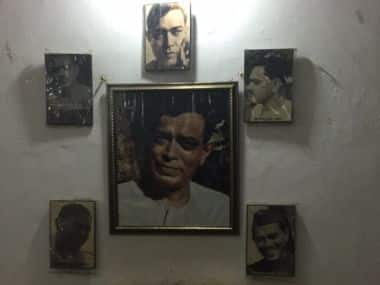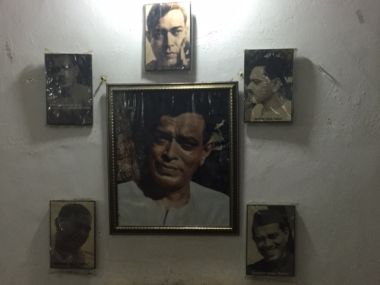The story may be apocryphal but it has a ring of truth around it. At the peak of the Jai Prakash Narayan movement, the leader was down with serious illness. Ram Dhari Singh Dinkar, one of the most articulate poets of his time, went to the Tirupati temple for Darshan and beseeched the deity with a prayer, “If I have any life left, give it to JP”. Dinkar died the next day and JP survived to lead the anti-Emergency movement. Those who fought the Emergency in 1975 and were closely associated with JP, Dinkar and Ram Nath Goenka get nostalgic while recounting this story. Prime Minister Narendra Modi and Bihar’s Chief Minister Nitish Kumar are products of the anti-Emergency movement and both have affinity to the poet. It’s ironical that they ended up on the opposite sides of a political divide. Nitish Kumar can recite Dinkar’s poems for hours on end and enjoys every moment of it. Modi, who writes poems in Gujarati, has also learnt Dinkar by rote and quotes his poem with relish. On Thursday’s rally at Begusarai, the birth place of the poet, Modi deliberately quoted his poetic exhortation against the Emergency: “Singhasan khali karo ki janata aati hai (vacate the throne lest people throw you out)”. Modi, quoting Dinkar, in the present political context found resonance among the audience. At Simaria, the village where the poet was born, people were overwhelmed with emotions. They expressed their gratitude to the PM for remembering someone whose poems are inscribed on every house of the village. In normal circumstances, his invocation of Dinkar’s poem here would have met with resistance. [caption id=“attachment_2462470” align=“alignleft” width=“380”]  Poet Dinkar. Image: Ajay Singh/Firstpost[/caption] Does that mean that people of the region would express their confidence in the BJP through ballots? Not quite. In Bihar, the political conduct of the electorate is guided by complex variables, not emotions alone. Nitish Kumar still retains his popularity even among those who attended Modi’s rally. “He is the best chief minister Bihar ever had,” said an activist who donned the BJP’s cap and attended the meeting at Beguserai. “But now we want a change,” he said, expressing his political preference in clear terms. However, yet another man within ear’s distance whispered, “Nitishji baaji le jayenge (Nitish will have victory)”. By all indication, Nitish Kumar is not handicapped by the anti-incumbency factor; rather he is benefitted by pro-incumbency. In people’s perception he is a leader with unblemished record and impeccable credentials. Much as he is frowned upon by a section of electorate for allying with Lalu Prasad Yadav, there is no denying the fact that the coalition against the BJP co-opted powerful caste groups, Kurmi and Yadav, along with Muslim to add Kumar’s political heft. In the caste-ridden society of Bihar, the image of “good man and able adminstrator” has limited role to play. Perhaps Bihar election is a political battle akin to the Mahabharat, where morality and ideology could be explained as per convenience. It is the unique setting where two warriors who graduated from the same political movement (JP movement) are pitted against each other by circumstances of their own creation. Dinkar vividly describes the epic battle in the poetic rendering of Mahabharat in his creation ‘Rashmirathi’. While all entreaties with Duryodhyana fails, Lord Krishna declares, “Yachna nahi ab rann hoga, jivan jay ya ki maran hoga (no further entreaties, it will be a fight to the finish)”. Both admirers of Dinkar — Nitish Kumar and Narendra Modi — have learnt this poem many times over during their formative years of struggle. People of Bihar who know it by rote culturally are soon to experience the consquence of it politically.
Prime Minister Narendra Modi and Bihar’s Chief Minister Nitish Kumar are products of the anti-Emergency movement and both have affinity to the poet.
Advertisement
End of Article


)
)
)
)
)
)
)
)
)



